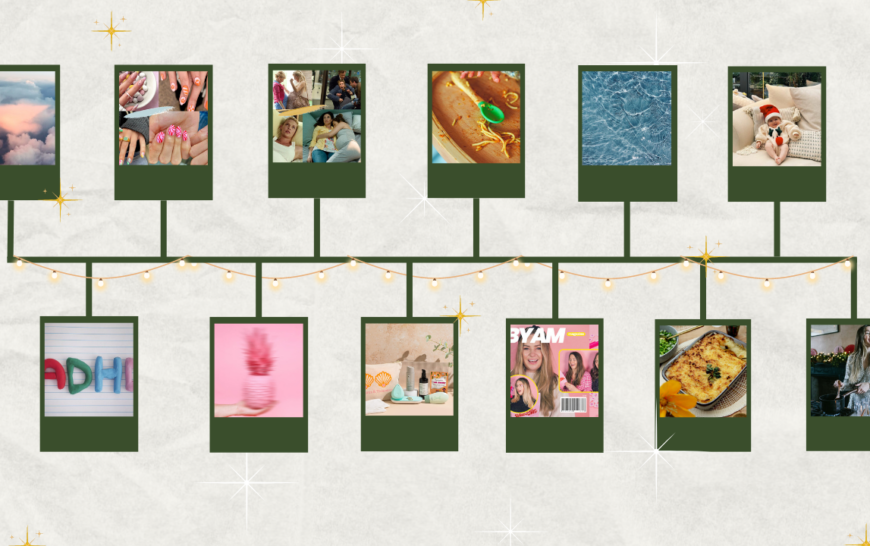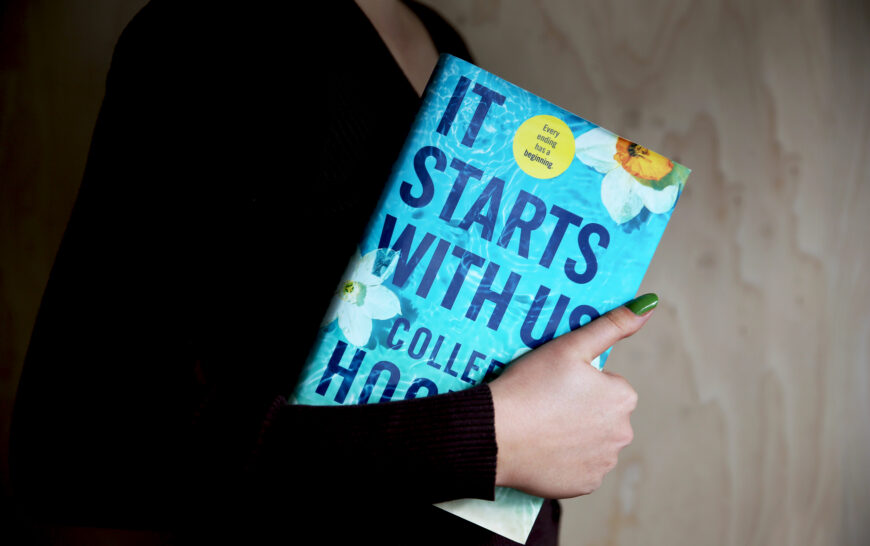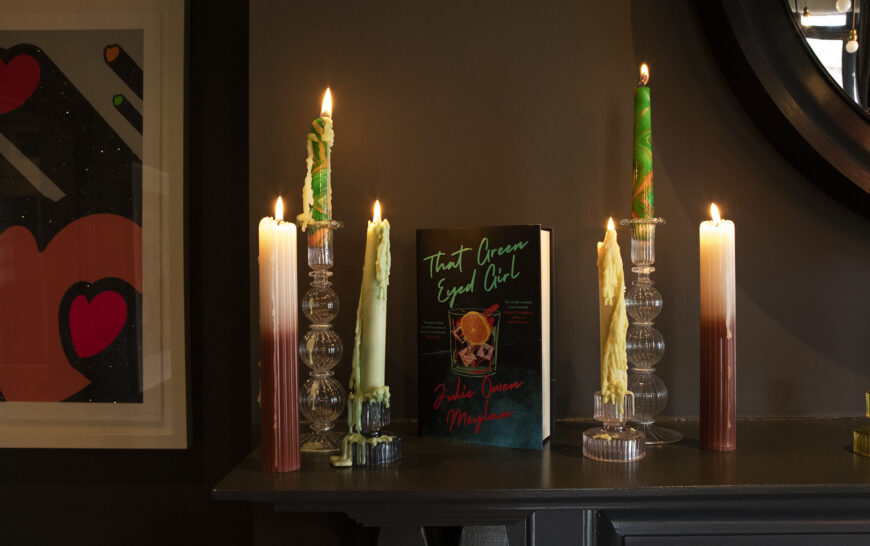
Alongside this month’s book club, we read Reni Eddo-Lodge’s ‘Why I’m No Longer Talking To White People About Race’.
The Observer described Reni’s work as, ‘A wake up call to a nation in denial’ and that’s exactly what it is.
This book hit a (white) nerve back in 2017 when it was first released, and it will continue to catalyse urgent and messy conversations that we were previously too uncomfortable to have. It will examine how you think and feel about race, interrogate your white identity and require you to listen intently to the black lived experience.
“Yet racism is a white problem. It reveals the anxieties, hypocrisies and double standards of whiteness. It is a problem in the psyche of whiteness that white people must take responsibility to solve.”
Consider this literary uprising your crash course in structural racism, white privilege and the history that lead us here.
We reflect on the thoughts and key learnings we took from Reni’s exploration of what it means to be a Black person in Britain today. Add it to your TBR pile immediately.
Lareese
I didn’t just want to read this book, I needed to and truthfully, I should have read it years ago but would I have been ready for it… honestly? Probably not. I would have been the blinkered white girl, oblivious to the privilege right under my nose and blinded by white denial. What on earth was I so willing to defend? Reni Eddo-Lodge’s Why I’m No Longer Talking To White People About Race should be compulsory reading, and if the title alone makes you feel uncomfortable, then even more reason to pick it up and pore over its lessons. I don’t think I’ve ever gone through a book and underlined so many passages. This is not a book you can cruise through; it’s painful and powerful and it deserves your undivided attention. Reni hits you hard with sour stats (2004 the first black judge, I mean really, 2004!) and in her examination of black British history, she invites you to draw your own conclusions on whether racism is an ‘American’ issue. I’d never heard about the Groce family or Floyd Jarrett before reading this book but it’s like Reni says, you have to actively go looking for black histories to know them. I found the passages about white privilege and the system particularly eye-opening – if you really want to understand race relations in this country, work your way through Reni’s words. I will be circulating this book amongst my peers and relatives strictly on a loan-only basis, so I can revisit its powerful pages and continue to check my white privilege. I want to remember this book forever.

Charlotte
I first read this book in 2018 but shamefully didn’t get to the end as my university work took over and reading for pleasure took a back seat. And whilst racism doesn’t exactly feel like a pleasurable topic, I’ve learnt in recent weeks the importance of facing discomfort head on to become more educated and with a better understanding of how to amplify the voices of people of colour. From the very first page, the facts and experiences shared by Eddo-Lodge around the prejudice and whitewashing of history taught in the UK is shocking- as a white person, it never occurred to me that our curriculum and education system could be so discriminatory. It was the parts of life that as a white person I’d never questioned that showed me just how ingrained racism is within our world’s structures and institutions. White privilege was one area I’d learnt about through social media in recent years and a part of this book I was only too happy to revisit. The following quote is one that really stayed with me: “When I was four, I asked my mum when I would turn white, because all the good people on TV were white, and all the villains were black and brown. I considered myself to be a good person, so I thought I’d turn white eventually. My mum still remembers the crestfallen look on my face when she told me the bad news” I hope the current momentum of the Black Lives Matter movement continues to give exposure to the lessons and truths tucked beneath the pages of this book- uncomfortable facts we as white people should have to face at the earliest opportunity.
Zoe
This book had been on my TBR pile unread for longer than I care to admit. I’d seen a lot of people I follow on social media talking about it and how it changed the way they thought about racism and anti racist work. More recently with the growing momentum of the black lives matter movement and the death of George Floyd, I felt it was important that I bumped this to the top of my reading list and we added it as an extra book for the Zoella June book club too. This is a truly important book and Reni taught me so much I shamefully had no idea about. I found the first chapter about the history of racism in Britain particularly shocking. Shocking in nature but also because I didn’t know about 75% of it. Reni herself said that it isn’t easy to find information or research the history of racism and slavery through Britain and that you have to really go looking for it. This is something that needs to change. You often hear of people saying “we don’t have racism here in the UK like they do in America”, and Reni’s book proves that is far from the truth. I also found her chapter on “The System” so eye opening, highlighting systemic racism that is so deep routed and the ways in which this seeps into society. I listened on audible during morning dog walks and read from my hard copy too. This is a book that you will want to go back to and that you’ll find yourself highlighting certain sentences and paragraphs in. I also want to pass this book on to a friend or family member and I encourage anyone reading this review to listen or read this book. It’s not something that should be sat on someone’s to be read pile, it’s something that should be compulsory. It’s important that reading this as a white person, you sit with the uncomfortable feelings when faced with facts and truths surrounding your white privilege and think about the ways in which you can continue to grow, learn and support others.

Darcey
I thought to myself whilst holding the book, open on the first page, why didn’t I choose to read this sooner? What is the reason for me only now taking the time to educate myself further. I knew this book would give me an answer. This book was brought to a lot of peoples attentions through the momentum of the the Black Lives Matter movement, but I questioned myself on why I didn’t seek out reading educational books on racism sooner. Well, it’s white privilege.
This is a book I found myself re-reading pages, making sure I was understanding not only what Eddo-Lodge was saying, but making sure I was understanding what that meant I needed to do. I was astounded at the UK’s history curriculum, which is painfully whitewashed, with little or no teaching in colonialism and slavery. But this is part of our history, this is something that needs to be taught to children.
One part of the book really stood out to me, it was when Eddo-Lodge discussed feminism and black women’s involvement within feminism. As someone who openly calls herself a feminist, I found it upsetting too read how feminism had almost rejected people of colour from the conversation, especially black women. I was ashamed in myself, that my view of feminism being inclusive and for everyone, was actually my own little bubble of how I saw feminism. I realised again how my white privilege had led me to believe that’s how everyone saw it, when in reality, a lot of people had felt left out of the conversation for some time.
I highly recommend that everyone reads this book, I think it should be compulsory to read in schools. I think if you feel uncomfortable at even the title of the book, more the reason to read it. Reading this book by no means my learning is done, I still have a lot to learn and too digest in order to be a better ally. I want to be part of keeping the Black Lives Matter momentum up, this cannot just be a moment. Radical change is needed and can only happen if everyone does their part.
Danielle
If you’re looking to start your journey of learning about race than ‘Why I’m No Longer Talking To White People About Race; should absolutely be your first read. With the most recent BLM movement gaining more deserved attention than ever it’s easy to get wrapped in the race relations happening in the U.S, I know far more about what’s going on over there than I do here and with the lack of education given to us in school about black UK history I was ashamed about how little I knew about racism in the UK. This book is tough one to pick up as every time you start it your faced with your own ignorance and white privilege but that’s exactly why you should read it. There’s such a long way to go in the fight for equality for Black People so reading this book, and subsequently lending it to everyone you know and making sure they read it to will absolutely help to educate and change people who are stuck in there ways and burying their heads in the sand. You can post a black square on your timeline and sign a few petitions but if you really, truly want to start work on anti-racism pick up a copy of this book ASAP.

Amy
Wow. What a read. I’m so glad that this was chosen to be on the Zoella Book Club this month, as this is a book that everyone should get their hands on.
It’s not easy read by any means – in fact, it’s discomforting and forthright – and as Eddo-Lodge lays out the structural racism faced by Black people in the UK, through the lenses of education, feminism, class and employment, it’s impossible to deny that we have so much work to do to dismantle those racist systems.
As a mixed race (but white-passing, and I benefit from white privilege) woman of colour, maybe the most important thing I took from this book was the need to separate Black issues from the BAME acronym. Seeing race is important, and so is identifying the racist systems embedded in all aspects of our society.
Eddo-Lodge writes with real clarity and honesty, and I hope her work reaches as many people as possible.
Black Lives Matter.
Maddie
I’m ashamed to admit that at the age of 32, outside of education, this is the first time i’ve picked up a book that is entirely about race and black history. I studied Sociology at university, a subject I found fascinating, and so i’ve always been interested about our society and specifically inequalities and differences within society whether that was to do with gender, religion, race, femininity, masculinity and education to name a few. That being said, It’s only really now since the Black Lives Matter movement hit all of our hearts with the devastating treatment and subsequent death of George Floyd that I realised how much more I need to learn and listen. I think it also made a lot of us realise how much the text books leave out and as Reni talks about, you have to really really look and seek out this information on black history, specifically in the UK which really shouldn’t be the case. I’m pleased we chose this book for an extra bookclub pick this month and i urge you reading this to pick up a copy. Up until a few weeks ago I thought it was enough to just not be racist, to not judge people by the colour of their skin and treat everyone the same. It’s by educating myself with books like this that I have learnt that we need to do more than this, we need to be more conscious, we need to know about the history. I know that myself, as a white woman, I will never truly understand but I want to do what I can to help instil change that is so desperately needed.








